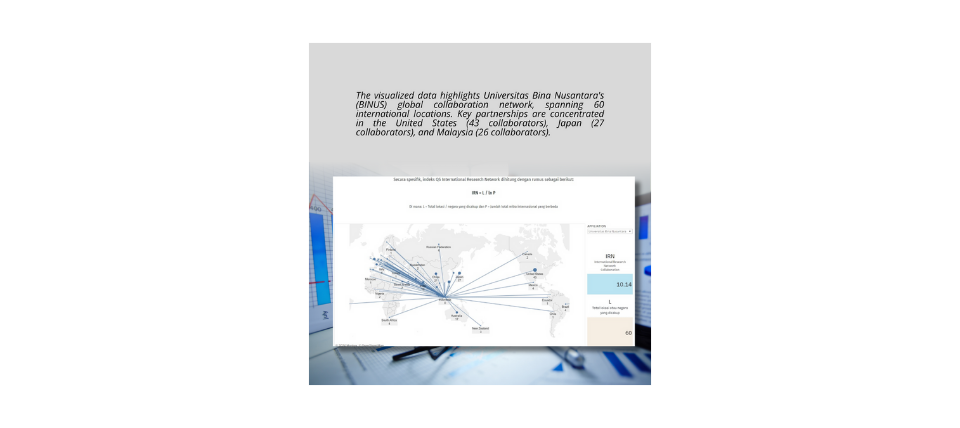Global Research Collaboration: BINUS University’s International Reach

The QS International Research Network (IRN) Index, derived using Scopus data, evaluates an institution’s international openness in research collaborations. Adapted from the Margalef Index used in environmental science, this metric measures the diversity of international research partnerships. The formula for the IRN Index is IRN=L/InP where L represents the total number of locations or countries covered, and P signifies the total count of distinct international collaborators. The aim of this indicator is to reflect the richness and diversity of an institution’s global research partnerships.
 |
 |
The visualized data highlights Universitas Bina Nusantara’s (BINUS) global collaboration network, spanning 60 international locations. Key partnerships are concentrated in the United States (43 collaborators), Japan (27 collaborators), and Malaysia (26 collaborators). Other significant collaborations include institutions in the United Kingdom, Taiwan, and China. The IRN score of 10.14 indicates a strong level of international engagement and diverse academic connections.
Furthermore, the geographical distribution of collaborations emphasizes BINUS’s extensive global reach, with notable connections across Asia, Europe, North America, and Africa. Countries like India, Australia, and France also feature prominently, while smaller-scale partnerships extend to regions such as South America and the Middle East. This diverse network underscores BINUS’s commitment to fostering global academic relationships and advancing international research initiatives.
#GlobalCollaboration #ResearchNetwork #InternationalPartnerships #BINUSUniversity #AcademicExcellence #QSIndex #GlobalResearch #HigherEducation #Innovation #ScopusData

